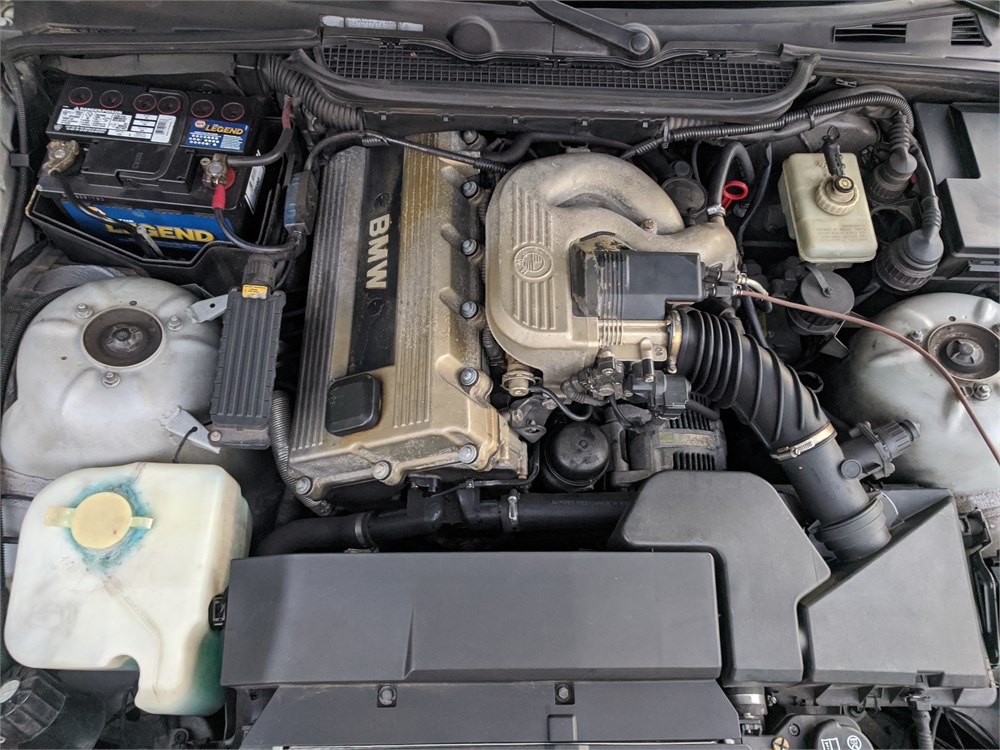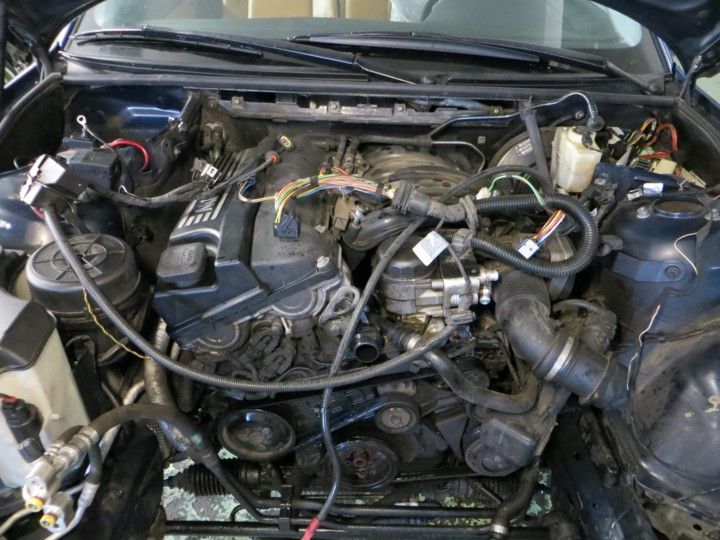Why the BMW 318ti Is a Leading Selection for Vehicle Enthusiasts
Why the BMW 318ti Is a Leading Selection for Vehicle Enthusiasts
Blog Article
Key Features to Look for When Getting an Engine for Automotive Applications
When thinking about the acquisition of an engine for auto applications, a number of crucial features warrant cautious assessment to ensure ideal efficiency and functionality. From power and performance capacities to fuel longevity, efficiency, and adherence to discharges criteria, each facet plays an essential function in establishing the engine's suitability for particular automobile requirements.
Power and Efficiency
When picking an automotive engine, buyers prioritize power and performance to make sure ideal driving experience and performance. The power result of an engine, usually gauged in horse power (HP) or kilowatts (kW), determines the velocity, leading rate, and total capacities of a lorry. Higher power rankings usually cause quicker velocity and much better efficiency, particularly during overtaking or carrying heavy loads. Efficiency, on the various other hand, includes a wider spectrum of qualities, including fuel performance, exhausts, integrity, and general driving dynamics. A well-performing engine not only delivers power successfully yet likewise operates smoothly throughout various speed ranges and driving problems.
Purchasers frequently consider the engine's torque result together with its power rating. Torque, gauged in pound-feet (lb-ft) or Newton-meters (Nm), shows the engine's rotational force, affecting the automobile's capacity to tow, climb slopes, and speed up from standstill. An equilibrium between power and torque is crucial for attaining a functional and responsive driving experience. Additionally, aspects such as engine displacement, crossbreed, and turbocharging modern technologies play considerable duties in improving both power and efficiency degrees. Eventually, choosing an engine that offers a powerful mix of power and performance makes certain a enjoyable and effective driving experience. bmw 318ti.
Fuel Efficiency
When assessing auto engine choices,Maximizing fuel performance is a paramount factor to consider for consumers. The effectiveness of an engine straight affects operating expense and environmental impact. One essential aspect influencing fuel performance is the engine's design and modern technology. Modern engines with features like direct gas shot, turbocharging, and variable valve timing can significantly enhance fuel effectiveness by boosting combustion processes and minimizing power loss. Additionally, the general weight of the engine and lorry, as well as the aerodynamics, play critical roles in figuring out gas consumption.

Longevity and Integrity
Accomplishing long-lasting efficiency and trustworthy operation is crucial for consumers reviewing the longevity and reliability of automobile engines. When taking into consideration an engine for automobile applications, resilience describes the engine's capability to withstand wear, anxiety, and rough operating problems over an extensive duration. Reliability, on the other hand, indicates that the engine can consistently do its desired function without unforeseen failures or failures.
Consumers need to search for engines created with top quality products and specific engineering to guarantee durability. Elements such as pistons, crankshafts, and bearings ought to be long lasting to take care of the engine's power output without premature wear. Additionally, engines geared up with sophisticated air conditioning systems, reliable lubrication, and durable filtration mechanisms tend to exhibit higher levels of dependability.
Routine maintenance and adherence to supplier suggestions are likewise important variables in maintaining an engine's longevity and reliability. By following upkeep timetables, making use of advised liquids, and attending to any type of problems immediately, consumers can maximize the lifespan and efficiency of their vehicle engines. Inevitably, focusing on resilience and dependability in engine selection can result in an extra gratifying possession experience with less unforeseen disruptions.
Emissions Conformity
Making sure compliance with emissions regulations is a critical facet of examining vehicle engines for environmentally aware customers. With enhancing concerns concerning air high quality and environmental influence, stringent exhausts requirements have my company been established globally to lower damaging pollutants launched into the ambience. When buying an engine for automotive applications, it is necessary to consider its discharges conformity to lessen the carbon footprint and abide by legal demands.
Modern engines are equipped with sophisticated discharge control technologies such as catalytic converters, exhaust gas recirculation (EGR) systems, and careful catalytic decrease (SCR) to lower damaging exhaust gases like nitrogen oxides (NOx), carbon monoxide (CO), and hydrocarbons (HC) These systems play a crucial function in making certain that the engine satisfies the defined emissions criteria and runs within allowable limitations.

Cost-effectiveness
When considering automotive engine acquisitions, reviewing cost-effectiveness is extremely important for customers looking for both performance and worth. It includes the total expenses associated to upkeep, gas consumption, and prospective repair work over the engine's life-span.
One key aspect of cost-effectiveness is fuel efficiency. Engines that are made to maximize gas economy can cause considerable savings over time, specifically for people who drive regularly or over lengthy distances. In addition, thinking about the availability and price of spare parts and maintenance can contribute to the total cost-effectiveness of an engine. Making sure that maintenance and fixings are affordable and available can avoid unanticipated monetary burdens down the line.

Verdict
In verdict, when purchasing an engine for automotive applications, it is critical to take into consideration key functions such as power and performance, fuel dependability, toughness and performance, discharges compliance, and cost-effectiveness. These variables are necessary in ensuring that the engine fulfills the needs of the vehicle and runs effectively link in numerous driving problems - bmw 318ti. Making an educated decision based upon these standards will ultimately bring about a reliable and effective automotive engine purchase
From power and efficiency capabilities to fuel sturdiness, performance, and adherence to exhausts standards, each facet plays a critical function in figuring out the engine's viability for certain automotive requirements. Engines developed to run on different gas such as electrical power, crossbreed systems, or biofuels can provide improved gas economic climate and lower exhausts compared to traditional gas or diesel engines. Consumers must thoroughly take into consideration the fuel performance scores and technologies included right into automotive engines to make educated More about the author buying choices that line up with their priorities for expense financial savings and sustainability.
When taking into consideration an engine for automotive applications, longevity refers to the engine's ability to hold up against wear, tension, and extreme operating conditions over an extensive period.In final thought, when acquiring an engine for automotive applications, it is crucial to take into consideration crucial functions such as power and performance, gas performance, resilience and dependability, exhausts conformity, and cost-effectiveness.
Report this page